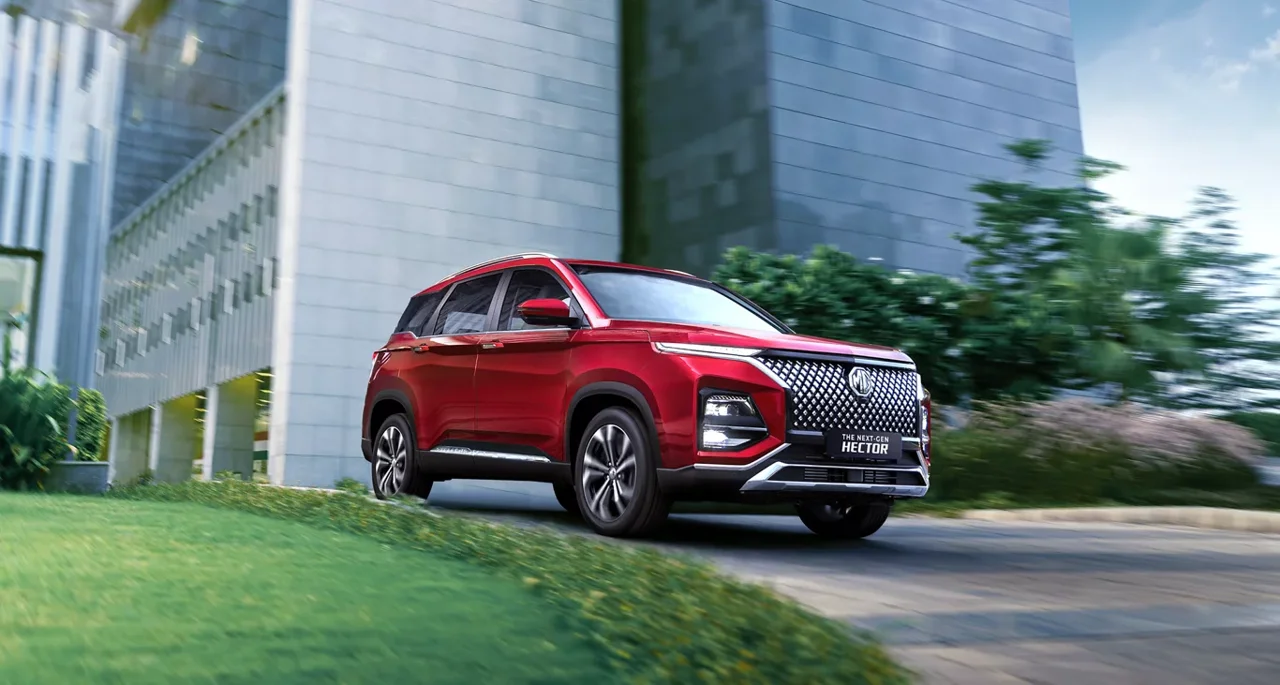What is the mileage of MG Hector?
The MG Hector offers different mileage figures depending on the fuel type and transmission. The manual petrol variant delivers up to 679 km/l, while the automatic petrol variant offers up to 679 km/l.


12.34 - 679 kmpl
Petrol Mileage
Manual
679 kmpl
Automatic
679 kmpl
Style
13.79 kmpl
Petrol • Manual
ARAI mileage
Monthly Fuel cost for 40km/day₹8,247
Select Pro
679 kmpl
Petrol • Manual
ARAI mileage
Monthly Fuel cost for 40km/day₹167
Smart Pro
679 kmpl
Petrol • Manual
ARAI mileage
Monthly Fuel cost for 40km/day₹167
Sharp Pro
13.79 kmpl
Petrol • Manual
ARAI mileage
Monthly Fuel cost for 40km/day₹8,247
Smart Pro CVT
12.34 kmpl
Petrol • Automatic
ARAI mileage
Monthly Fuel cost for 40km/day₹9,216
Sharp Pro CVT
679 kmpl
Petrol • Automatic
ARAI mileage
Monthly Fuel cost for 40km/day₹167
Savvy Pro CVT
679 kmpl
Petrol • Automatic
ARAI mileage
Monthly Fuel cost for 40km/day₹167
Maintain your MG Hector in top-notch condition by regularly servicing the vehicle.
Be gentle with the accelerator pedal, and avoid sudden acceleration.
Maintain the optimum tyre pressure in your MG Hector.
Maintain your MG Hector in top-notch condition by regularly servicing the vehicle.
Be gentle with the accelerator pedal, and avoid sudden acceleration.
The MG Hector offers different mileage figures depending on the fuel type and transmission. The manual petrol variant delivers up to 679 km/l, while the automatic petrol variant offers up to 679 km/l.
The MG Hector delivers excellent fuel efficiency in city conditions. The manual petrol variant achieves up to 679 km/l, while the automatic petrol variant delivers up to 679 km/l under typical city driving conditions.
The MG Hector manual transmission offers up to 679 km/l, while the automatic transmission delivers up to 679 km/l. The difference is minimal, making both options fuel-efficient choices.
The mileage of MG Hector can be affected by various factors including driving conditions, traffic patterns, vehicle maintenance, tire pressure, and driving style. Under optimal conditions, you can achieve up to 679 km/l with manual transmission and 679 km/l with automatic transmission.
Yes, the MG Hector is quite fuel efficient. It delivers up to 679 km/l with manual transmission and 679 km/l with automatic transmission, making it an economical choice for daily commuting.
Discover. Decide. Drive.
Explore at your pace, with expert recommendations if needed. Finalise and book your car at the best price.
Financing the right way
Access the best loan options with hassle-free, paperless financing.
Prepare to drive
Schedule delivery for your special day and track updates effortlessly.Schedule delivery for your special day and track updates effortlessly.